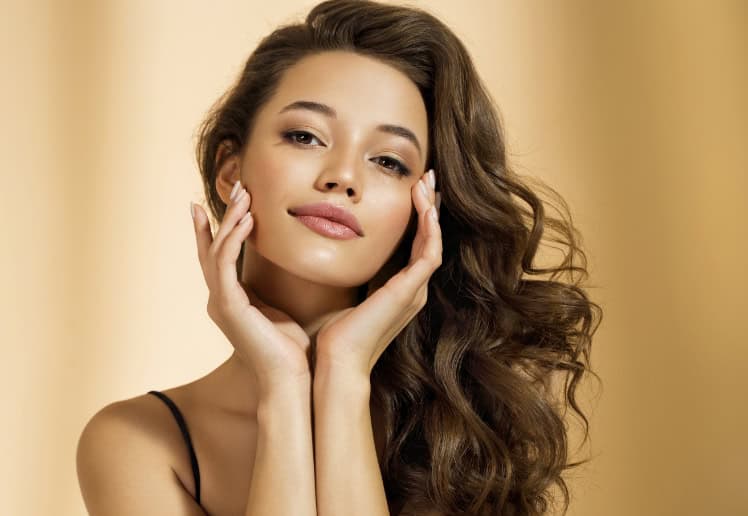
How to Make Your Hair Less Greasy
Greasy and oily hair can be a frustrating problem that affects your confidence and styling choices. Excess oil can weigh down your hair, making it look limp and unclean.
Fortunately, there are several strategies you can employ to manage and reduce greasiness, leaving your hair looking fresh and vibrant.
Here’s a comprehensive guide on how to make your hair less greasy.
1. Wash Your Hair Less Frequently
One of the most counterintuitive yet effective ways to reduce greasy hair is to wash it less often.
Over-washing can strip your scalp of natural oils, prompting it to produce even more oil to compensate. Try extending the time between washes gradually. Start by washing every other day, then every three days, and see how your scalp adjusts.
2. Use the Right Shampoo
You should always look for hair products without any Sulfates, such as sodium lauryl sulfate and sodium laureth sulfate, as these are harsh detergents that strip the hair of its natural oils.
They may be effective for cleaning BUT they are harsh for those with oily hair, leading to an overproduction of oil as the scalp tries to compensate.
At Chika Bella, we offer two excellent options for managing greasy and oily hair. These organic, natural and vegan shampoos are free from any harmful chemicals.

7 Oils Shampoo
Features:
Natural Ingredients: includes a blend of seven different oils, which are chosen for their nourishing properties
Moisturising: oils can help to moisturise the scalp and hair, reducing the overproduction of sebum that can lead to greasy hair
Scalp Health: these oils have antibacterial and antifungal properties, which can help maintain a healthy scalp environment.

Babosa Liss Shampoo
Features:
Babosa (Aloe Vera): known for its soothing and hydrating properties, aloe vera can help reduce oiliness by moisturising the scalp without making it greasy
Natural Ingredients: free from any harmful chemicals, making it gentle for regular use.
Smoothing: anti-inflammatory and antioxidant properties making your hair glossy, supple and smooth, reducing frizz and making hair more manageable.
Always Avoid:
heavy, moisturising shampoos that can add more oil to your scalp
shampoos with silicones, which can weigh hair down and make it look greasier.
3. Condition Strategically
Conditioner is essential for keeping your hair hydrated, but it can also contribute to greasiness if applied incorrectly.
Apply Conditioner only to the ends of your hair, avoiding the scalp. This will keep your hair moisturised without adding excess oil to your roots.
4. Rinse Thoroughly
Make sure to rinse your hair thoroughly after shampooing and conditioning. Residue from hair products can build up on your scalp, contributing to greasiness. Spend an extra minute or two under the shower to ensure all product is washed out.
5. Avoid Touching Your Hair
Constantly touching your hair transfers oils from your hands to your hair, making it greasy faster. Try to keep your hands away from your hair as much as possible throughout the day.
6. Adjust Your Diet
What you eat can affect your scalp’s oil production. A diet high in greasy, oily foods can lead to an oily scalp.
Incorporate more fruits, vegetables, and lean proteins into your diet. Omega-3 fatty acids, found in fish and flaxseeds, can also help maintain a healthy scalp.
7. Brush Your Hair Less Often
While brushing distributes natural oils from your scalp throughout your hair, over-brushing can stimulate more oil production. Brush your hair gently and only as needed to prevent stimulating excess oil production.
8. Consider Your Hair Products
Styling products such as gels, mousses and sprays can build up on your scalp and contribute to greasiness. Use these products sparingly and opt for lighter formulations. Look for products labelled as “lightweight” or “oil-free.”
9. Examine Your Haircare Routine
Reevaluate your hair care routine periodically. Products and techniques that worked well before may need to be adjusted as your hair changes due to factors like climate, diet and hormonal fluctuations.
10. Consult a Dermatologist
If you’ve tried various methods and still struggle with greasy hair, it might be worth consulting a dermatologist. Excessive oil production can sometimes be a sign of an underlying scalp condition that needs professional treatment.
Find the Best Option for Your Haircare Routine
Managing greasy hair involves a combination of the right products, techniques, and lifestyle changes.
By washing your hair less frequently, using the right Shampoo and Conditioner, incorporating natural remedies, and making mindful adjustments to your routine, you can keep your hair looking fresh and less oily.
Experiment with these tips to find what works best for your hair type and lifestyle.
Explore our website to explore all our options in detail and choose the best product for your hair care needs. For greasy and oily hair we recommend our 7 Oils and Babosa Liss Shampoos, which provide natural solutions to ensure your hair stays nourished, healthy and beautiful.

